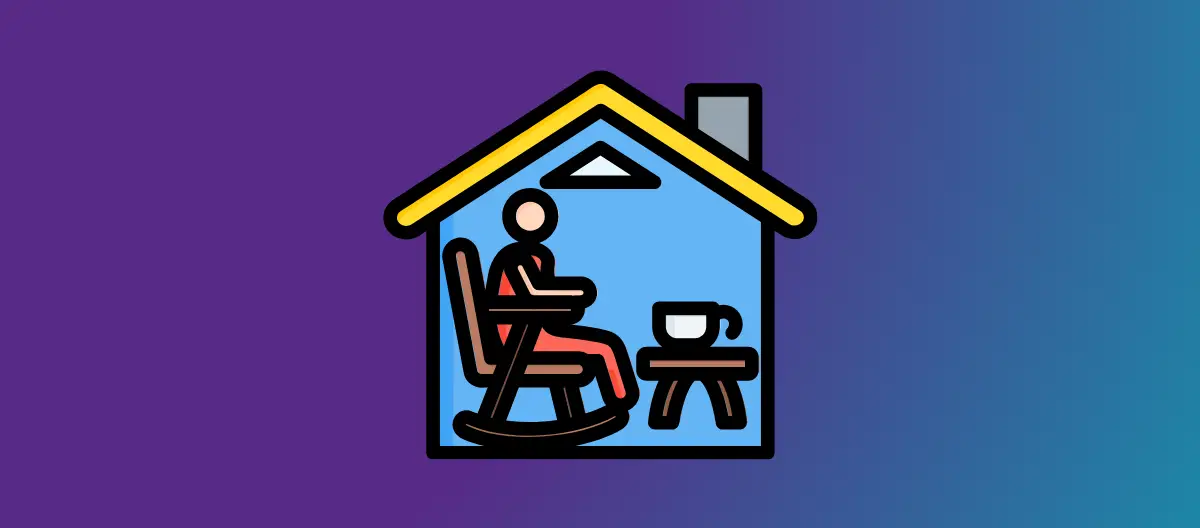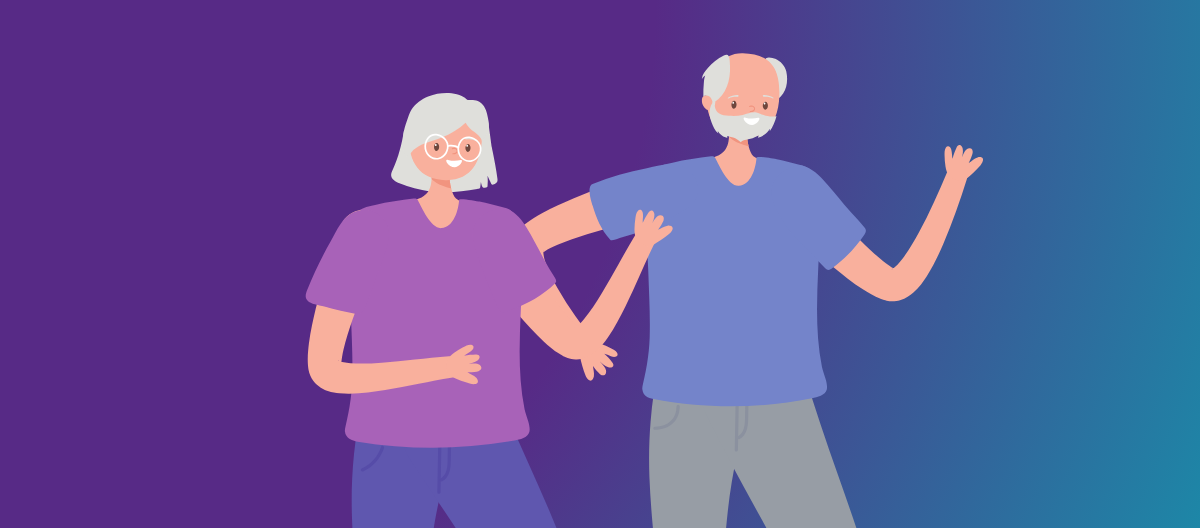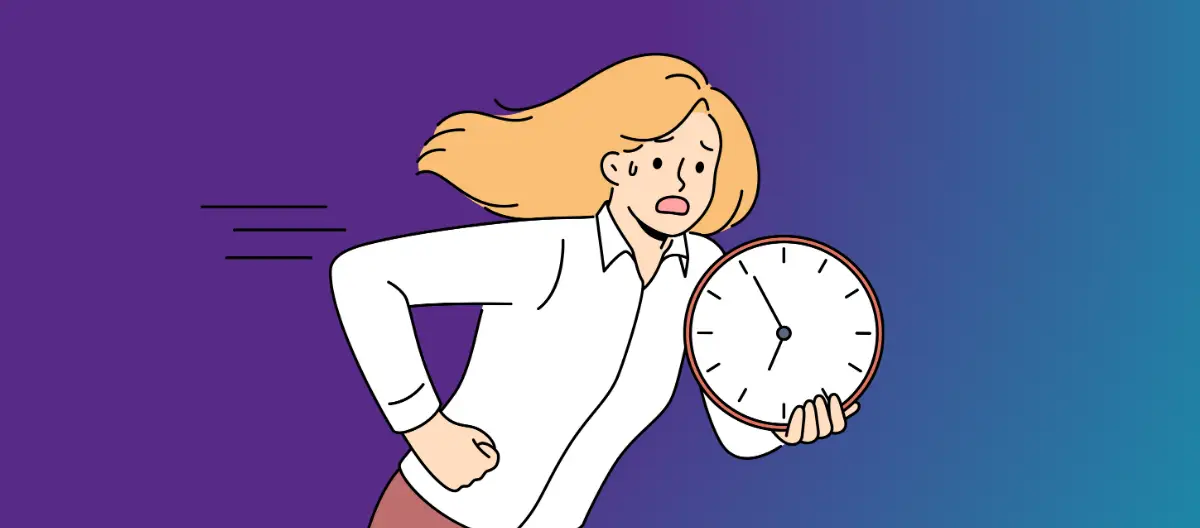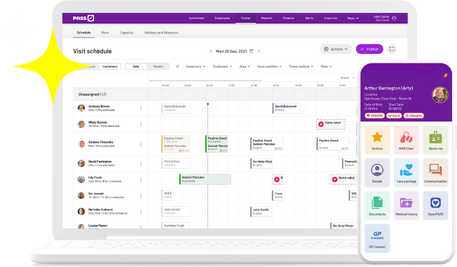Many older people want to continue living in their own home. But, to do that, they need some independent living skills.
Having some key life skills for independent living means that they’re less likely to injure themselves, end up in danger, or mismanage money.
For care providers, using robust care management software can simplify the process of gathering essential client information during an independent living skills assessment. Alternatively, if you’re a relative or friend concerned about a loved one, you might be wondering how to decide whether they’re able to live alone safely.
In this article, we’ll look at why independent living is important, some of the skills needed to live independently, how to assess whether someone is safe to live alone, and what the options are if they can no longer live independently.

Table of Contents
Why is independent living important?
For most older people, living independently in their own home is their first choice.
There are lots of reasons why someone might want to stay in their current home:
- They can remain part of the local community, living near friends, familiar shops, and places of worship.
- They can continue to see the same doctors, dentists, opticians, and other healthcare providers – moving to a care facility might mean that they lose that continuity of care.
- They can continue to live with family members, housemates, or pets.
- They can still be surrounded by their own furniture and possessions, and can be reassured by the familiar layout of their home – this is especially important for people living with dementia.
And lots of older people want to continue living at home because they value their impendence. They don’t want to move to a care facility where they no longer have access to a kitchen, for example, or where they have little choice about meals.
But, as with all aspects of adult social care, what’s most important is that the client is happy with their choice.
While some people will be determined to stay in their own home, some might prefer to move to a care home or supported living. This might be because they need support managing their daily needs, they’re struggling with the upkeep of their home, they’re lonely in their current home, or they’re worried about their future health.
However, even if someone chooses to move to a care facility, care providers will still encourage their independent living skills. Being able to do even small tasks independently can boost people’s self-esteem, slow cognitive decline, and potentially improve their mental health.

Examples of independent living skills for seniors
Life skills for independent living encompass a range of areas – basically, everything that’s needed to keep someone safe and healthy in their own home.
The skills needed to live independently might include:
- Personal care skills, including being able to get dressed, go to the toilet, and manage bathing or showering
- Food preparation skills, such as shopping, preparing, and cooking meals
- Housekeeping skills, including keeping the home clean, doing laundry, and basic repairs around the house
- Money management skills, which might include budgeting, paying bills, and avoiding scams
- Other life skills, including making appointments, knowing when to seek medical help, and time management
If you’re care planning for a new client, or concerned about a loved one, you’ll need to ask yourself a range of questions about each topic.
We’ve put together some questions that can help you conduct an independent living skills assessment, or make decisions about how to support a loved one.
Don’t forget, by using dedicated care planning software, you can effortlessly record and monitor each client’s unique needs.
Personal care skills
- Can the person dress themselves safely?
- Can they wash themselves, whether in the bath or shower?
- Can they go to the toilet or manage their own continence care?
- Can they manage their own medication?
- Can they manage their own dental care?
- Can they move safely around their home, including managing any stairs?
- Could they call for help in an emergency?
- If they can’t manage all of these personal care skills, can you arrange for services or home adaptations that will make them possible? For example, installing grab rails in the bathroom.
Food preparation skills
- Can the person shop for food, either online or in person?
- Can they safely prepare and cook food?
- Can they wash utensils and cooking equipment after use?
- Are they able to turn off any ovens, hobs, and other cooking equipment after use?
- Would they be able to call for help in the event of a fire?
- Can they plan meals that meet their dietary requirements?
- Does their current diet keep them healthy?
- If they can’t manage these food skills, can you utilise services that will make it possible for the person to continue living at home? For example, arranging home meal delivery.
Housekeeping skills
- Can they keep their home clean? This includes tasks like vacuuming and sweeping, wiping down services, cleaning bathrooms, and cleaning up after spillages.
- Do they notice when there are messes that need to be cleaned?
- Can they keep important areas free of clutter? This might include making sure that the bed is clear from clothes, or that nothing is left on the stairs.
- Can they manage laundry?
- Can they do simple home repairs such as changing a lightbulb or unclogging a blocked drain?
- Do they know what to do in the event of an emergency, such as a leak or fire?
- If they can’t manage housekeeping, can you arrange services that will make it possible for the person to continue living at home? For example, hiring a cleaner or laundry service.
Conducting regular risk assessments is key to identifying any potential hazards, ensuring that older clients remain safe and supported in their own homes.
Money management skills
- Can they plan their own budget?
- Can they remember to pay their own bills?
- Do they know how to check their own bank account and withdraw money?
- Are they aware of financial scams and basic precautions to take to avoid them?
- If they can’t manage their own money, can you or a family member make arrangements to help them? This could include setting up a lasting power of attorney, or arranging direct debits so they don’t need to remember to pay bills.
Other life skills
- Do they know how to make an appointment with the doctor, dentist, or optician?
- Do they know when they should seek help with health concerns?
- Can they use a phone to contact people?
- Are they able to get to the shop, chemist, and medical appointments?
- If they have a pet, are they able to care for them independently?
- Are they able to plan their own time? This might include remembering medical appointments and leaving enough time to travel to them, or being aware of shop opening hours.
- If they currently receive support from a partner, family member, or friend, could they manage if this person was ill or unable to help them for a time?

What if someone doesn’t have the skills needed to live independently?
Once you’ve asked these questions, you might realise that your client or loved one isn’t always safe in their own home.
If the person lives with a partner, or has someone who can regularly visit to help them, they may not need all of the independent living skills we’ve mentioned here.
But sometimes, an older person might want to stay in their own home, but they no longer have some of the key life skills for independent living – and they don’t have someone who can regularly help. This is particularly common after an illness or injury, or if they’ve recently been bereaved.
If someone wants to stay in their home, you should try to facilitate that if possible.
Support with individual tasks
If the person struggles with cleaning, gardening, or getting out to the shops, you could encourage them to get help with these tasks.
Extra support around the home might include:
- Hiring a cleaner, gardener, or dog walker
- Using a laundry service
- Using taxis or patient transport options instead of driving
- Arranging for home delivery from a supermarket, or pre-prepared meal deliveries
- Asking a family member or friend to help with tasks like cooking, walking a dog, or driving
Most of these methods of support will cost money – but they may be cheaper than arranging home care. Additionally, if the person has a care assessment from their local authority, they may qualify for some financial assistance.
Home care
If the person needs a little more support, including help with personal care, managing medication, or food preparation, they might benefit from home care.
Also called domiciliary care, home care might involve just a quick drop in visit from a carer once or twice a week – or it could involve 24-hour care, live-in carers, and extra support during the day and night.
For care providers, adopting domiciliary care software can help in coordinating visits, recording care notes, and managing client schedules.
Residential care
For older people who need even more support, residential care may be an option.
There are a range of residential care choices, including:
- Sheltered housing schemes, which allow clients to rent or buy their own apartment, house, or bungalow, often with some communal facilities. These schemes don’t usually offer personal care or housekeeping, but may have alarm systems and an on-site warden who can help in an emergency.
- Very sheltered housing, sometimes known as extra care housing, or assisted living, which is a type of housing where the client has their own property, but staff are available throughout the day and night. Clients might rent or purchase a bungalow or apartment in the scheme, and can receive care as needed. There is often a restaurant on site, and clients will have access to an emergency alarm system.
- Care homes, which are usually large buildings where clients have their own rooms. Staff usually provide all personal care and meals. Some care homes specialise in supporting people with certain conditions, such as dementia, mental health conditions, or physical disabilities.
- Nursing homes, which provide the support found in care homes, with added nursing care. Nursing homes are most suitable for clients with complex health conditions that need a lot of management.

Conclusion: independent living skills for seniors
As people age, they often lose some of their independent living skills.
If they’ve been ill, had an injury, or recently lost a partner, you may find that they struggle quickly. However, other people might experience a gradual decline, which is harder to notice.
Whether you’re a care provider or support a loved one, you should regularly check in with older people who live alone. Ask yourself the questions we’ve listed here, and see whether the person needs any extra support.





